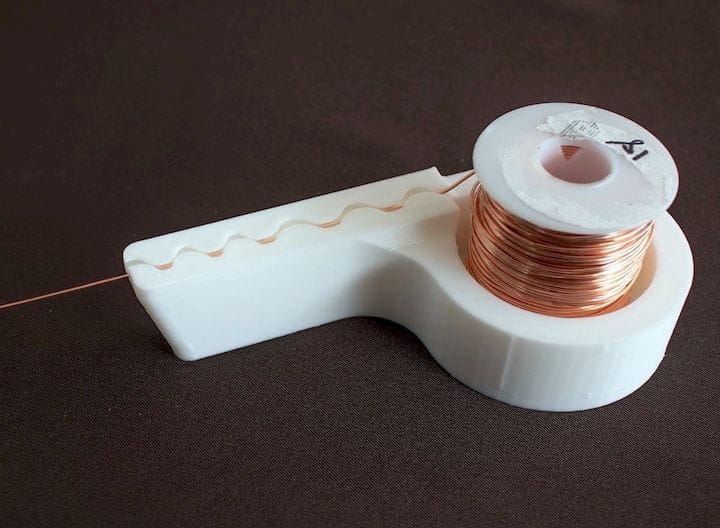![A 3D printed wire straightener [Source: Hackaday]](https://fabbaloo.com/wp-content/uploads/2020/05/image-asset_img_5eb09d7a16d25.jpg)
This week’s selection is the practical Wire Spool Holder With Straightener by Hackaday contributor Roger.
Roger, of Temple City, CA, is a designer who’s provided a number of interesting projects to Hackaday, including a Rover, Network storage box and even something called a TurtleBot. But we’re not as interested in them as we with his latest project, the “Wire Spool Holder With Straightener”.
This is one of those projects where the device does exactly what you’d expect. In this case it accepts a spool of wire and straightens it.
This is accomplished by pulling the wire through a series of wavy maneuvers that should persuade the wire to assume a perfectly straight path.
Straightening a wire by hand is often a very frustrating process, as it often becomes a back-and-forth struggle, frequently ending in a broken wire.
There’s one problem with the design: it is by default made to work with 18 gauge (1.02mm) wire only. If you were to use other wire sizes in the straightener, your results would be unpredictable. Roger says that you must tweak the design appropriately to match the wire diameter you’re seeking to straighten.
In order to do this, he’s provided a link to his Onshape cloud design, where one could, with an Onshape CAD account, make the necessary tweaks. However, due to popular demand, he’s also uploaded it to Thingiverse, but obviously that specific design would be extremely difficult to modify for other wire sizes.
I’d recommend using the Onshape design if you intend to use this design for anything other than 18 gauge wire. The problem is that Onshape has long since halted their free plan, leaving only the option of their standard plan, which is US$1,500 per year. There is an educational plan, but it is not available to anyone other than educators and students.
This is one of the problems when using a CAD cloud solution like Onshape, which does not lend itself to sharing files outside of its own ecosystem.
But regardless of these issues, it’s still a powerful 3D model certainly worthy of Design of the Week.
Via Hackaday











This week’s selection is a 3D printed Coronavirus!